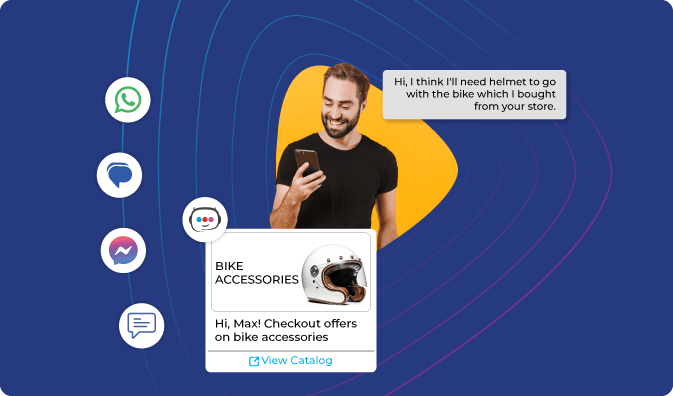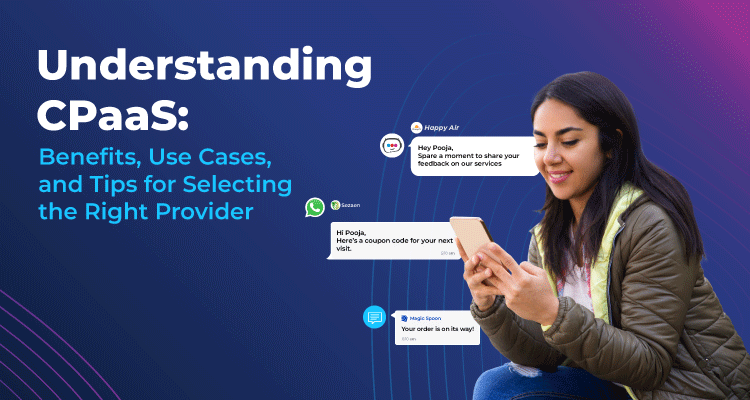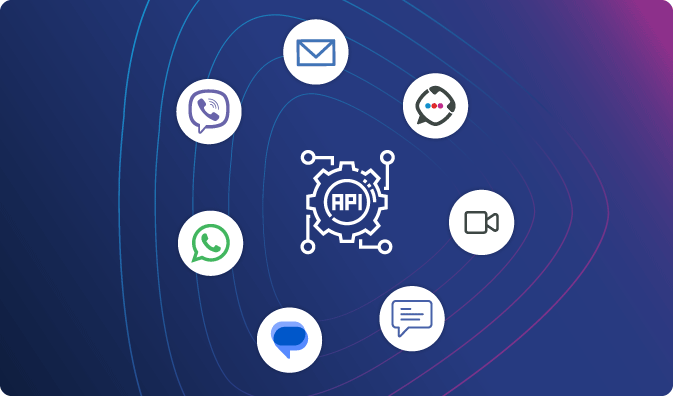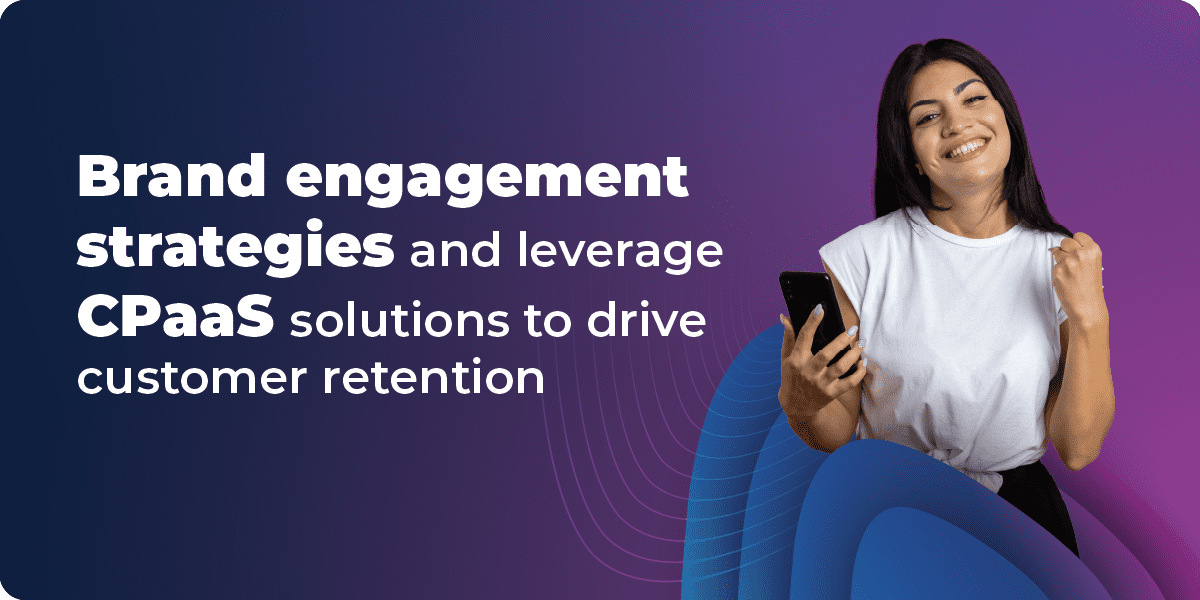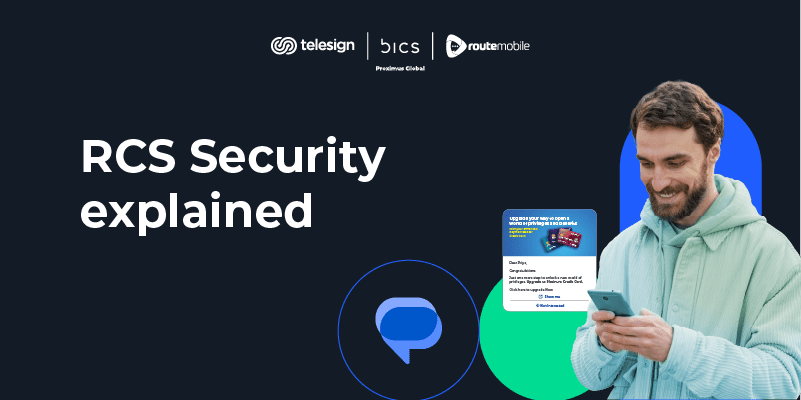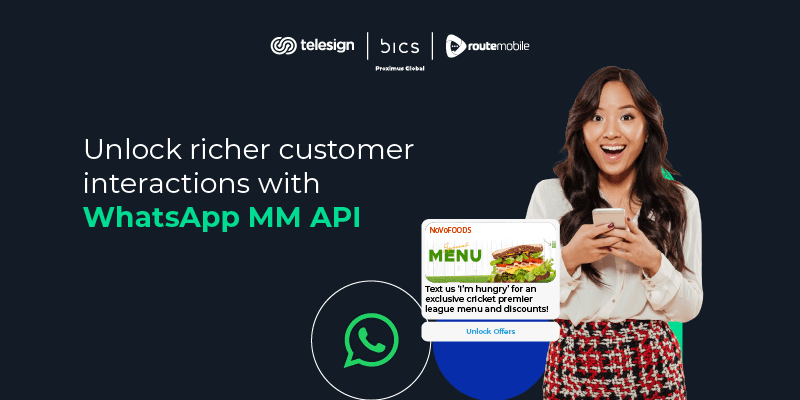In the fast-paced world of customer service and communication, businesses are constantly seeking innovative solutions to enhance user experience and streamline operations. One such groundbreaking technology-making wave is Conversational AI, seamlessly integrated into Communication Platforms as a Service (CPaaS). This fusion of AI-driven conversations with CPaaS offers unparalleled opportunities for businesses to engage with their customers in a more personalized, efficient, and effective manner
Summary:
What is conversational AI?
Conversational AI refers to artificial intelligence technologies designed to facilitate human-like interactions between computers or machines and users through natural language. It enables automated conversations between users and computer systems, typically through text or voice interfaces, mimicking human conversation patterns.
Here’s a breakdown of the critical components and functionalities of conversational AI:
1. Natural Language Understanding (NLU):
NLU allows the AI system to comprehend and interpret the meaning of user inputs, whether it’s text or speech. It involves tasks like intent recognition, entity extraction, and context understanding.
2. Natural Language Generation (NLG):
NLG is the process of generating human-like responses based on the understanding of user inputs. It involves generating grammatically correct and contextually relevant responses to ensure effective communication.
3. Dialog Management:
Dialog management controls the flow of conversation between the user and the AI system. It maintains context, handles multi-turn interactions, and decides when to ask for clarification or provide information.
4. Machine Learning and NLP:
Conversational AI systems often leverage machine learning algorithms and natural language processing (NLP) techniques to continuously improve their performance. They learn from interactions with users, allowing them to adapt and become more accurate over time.
5. Integration with Back-End Systems:
Conversational AI systems are often integrated with various back-end systems, databases, and external APIs to access and retrieve information needed to fulfill user requests. This integration enables them to make reservations, check account balances, or provide personalized recommendations.
6. Multichannel Support:
Conversational AI platforms can support multiple communication channels, including messaging apps, websites, mobile apps, and voice assistants. This allows users to interact with the AI system through their preferred channel, providing a seamless and consistent experience.
Overall, conversational AI is crucial in enabling businesses to automate customer interactions, enhance user experiences, and streamline processes across various industries such as customer service, sales, healthcare, and finance.

Understanding Conversational AI in CPaaS
When we look at Conversational AI in CPaaS it plays a vital role in enabling smoother conversations with customers. CPaaS provides developers the tools and APIs to embed real-time communication features such as voice, messaging, and video into their applications and workflows. By integrating Conversational AI Key components and capabilities into CPaaS platforms, businesses can create intelligent, automated communication systems that conversationally interact with users across various channels.
Enhancing Customer Experience
One of the primary benefits of incorporating Conversational AI into CPaaS is enhancing the customer experience. Traditional customer service channels often involve long wait times and impersonal interactions. With Conversational AI, businesses can offer instant, round-the-clock support through chatbots and virtual assistants that are capable of understanding and responding to user queries in real-time. Whether it’s answering FAQs, providing product recommendations, or assisting with troubleshooting, these AI-driven conversations simulate natural human interactions, leading to higher customer satisfaction rates.
Streamlining Operations
Beyond improving customer experience, Conversational AI in CPaaS also helps streamline internal operations. By automating routine tasks and inquiries, businesses can reduce the workload on human agents, allowing them to focus on more complex issues that require human intervention. Moreover, AI-powered analytics enable organizations to gain valuable insights into customer preferences, behaviour patterns, and frequently asked questions, empowering them to optimize processes and tailor offerings to meet evolving demands.
Multi-Channel Engagement
Another significant advantage of Conversational AI in CPaaS is its ability to facilitate multi-channel engagement. Whether it’s through RCS, SMS, voice calls, social media platforms, or website chat interfaces, AI-powered chatbots and virtual assistants can seamlessly transition between channels, providing a consistent user experience across all touchpoints. This omnichannel approach ensures that customers can interact with businesses through their preferred communication channels, enhancing accessibility and convenience.
Ensuring Security and Compliance
While harnessing the power of Conversational AI in CPaaS offers numerous benefits, it’s essential to prioritize security and compliance. With sensitive customer data being exchanged during conversations, businesses must implement robust security measures to safeguard against data breaches and unauthorized access. Additionally, compliance with regulatory requirements such as GDPR and DMARC is critical to maintaining trust and adhering to legal standards.
Future Outlook
As technology continues to evolve, the future of Conversational AI in CPaaS holds tremendous promise. Advancements in machine learning, NLP, and voice recognition will enable even more sophisticated and context-aware interactions, blurring the lines between human and AI communication further. Moreover, as businesses increasingly adopt digital-first strategies, Conversational AI in CPaaS will play a pivotal role in driving digital transformation and shaping the future of customer engagement.
Conversational AI in CPaaS Use cases
Customer Support:
Implementing chatbots or virtual assistants to handle customer queries, provide support, and troubleshoot issues in real-time, thereby reducing wait times and improving customer satisfaction.
E-commerce:
Using conversational AI to guide users through the shopping process, recommend products based on preferences and past purchases, answer questions about products or services, and facilitate seamless transactions on various communication channels like email, WhatsApp, RCS, SMS etc.
Healthcare:
Leveraging chatbots or virtual assistants to provide patients with information about symptoms, offer guidance on healthcare procedures, schedule appointments, and even monitor patients’ health remotely.
Financial Services:
Employing conversational AI for tasks such as account inquiries, transaction processing, personalized financial advice, fraud detection, and even investment recommendations on WhatsSpp, RCS, SMS.
Conclusion
In conclusion, Conversational AI in CPaaS represents a paradigm shift in how businesses communicate with their customers. By harnessing the power of AI-driven conversations within CPaaS platforms, organizations can deliver personalized, efficient, and seamless customer experiences while optimizing internal operations. As this technology continues to mature, businesses that embrace Conversational AI in CPaaS will gain a competitive edge in today’s dynamic marketplace.
Want to know how you can use Conversational AI for better customer communications? Contact us now.
